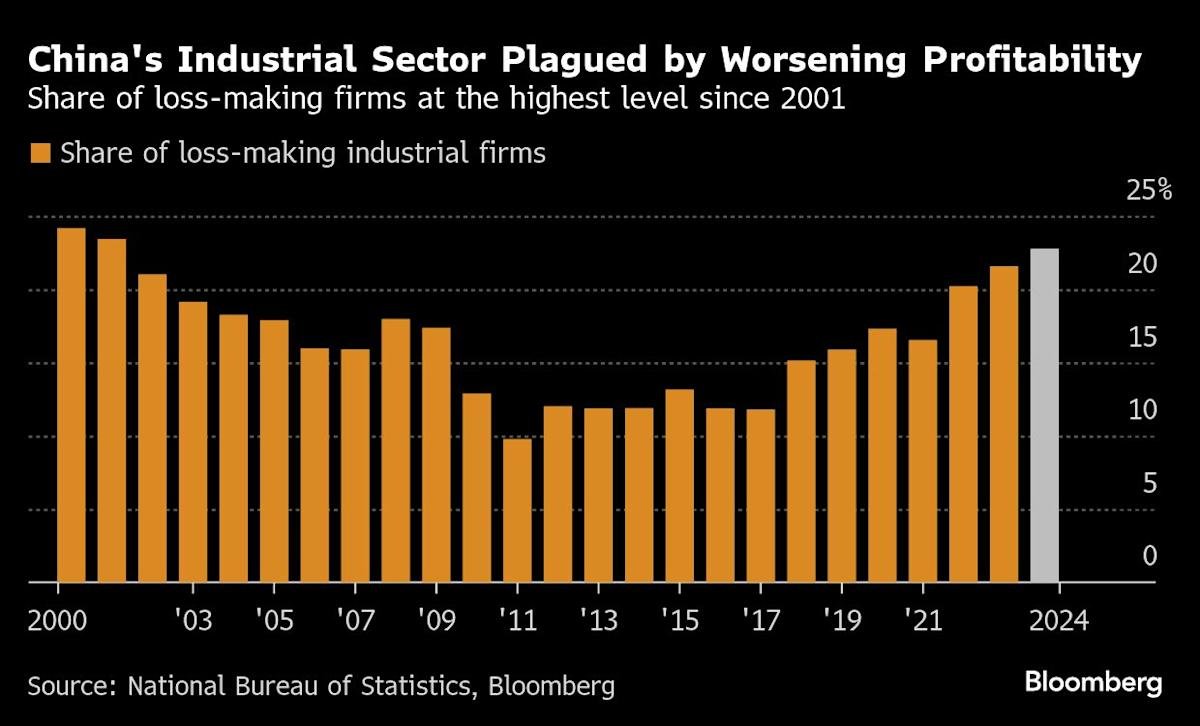(Bloomberg) — President Xi Jinping questioned the need for local governments across China to crowd into the same emerging industries, a rare rebuke that reflects growing concerns about deflation at home and trade tensions abroad.
Most Read from Bloomberg
“When it comes to launching new projects, it’s always the same few things: artificial intelligence, computing power, new-energy vehicles,” Xi said in a meeting in Beijing this week on urban development, according to a Thursday article on the front page of the People’s Daily.
“Should every province in the country be developing industries in these areas?” he was quoted as asking by the mouthpiece of the ruling Communist Party.
The blunt, colloquial criticism was unusual as state media typically publish his more formal comments or policy guidance. The comments reflect a growing concern of policymakers that officials across the country are pursuing investment in a select few industries favored by Beijing, exacerbating excess capacity and delaying consolidation.
Xi’s remarks add to a recent chorus from top officials calling for an end to price wars among industries, which are worsening a downward spiral in company profits and wages.
A State Council meeting chaired by Premier Li Qiang on Wednesday pledged to rein in “irrational competition” in the EV sector, more signs that authorities are getting serious about curbing overcapacity. A meeting of the top Communist Party body in charge of economic policy earlier this month vowed to regulate how local governments try to attract investment.
As domestic demands remain sluggish, growing supplies across industries are fueling a worrying deflation trend despite the economy’s recent resilience. Nominal growth rate, which accounts for price changes, was only 3.9% in the second quarter, the least outside the pandemic since the quarterly data began in 1993.
Competition among local governments for faster expansion, coupled with an investment-led model, has driven China’s growth miracle in recent decades. But it also created surging public debt and wasteful investment, leading to chronic overcapacity that has flooded foreign markets and raised geopolitical tensions.
Qiushi, an official magazine of the Communist Party, in an article this month offered a harsh criticism of local behaviors that fostered “disorderly competition.” It called out practices of illicit subsidies, “blind” investment in key industries and market barriers that disadvantage companies from other places.










